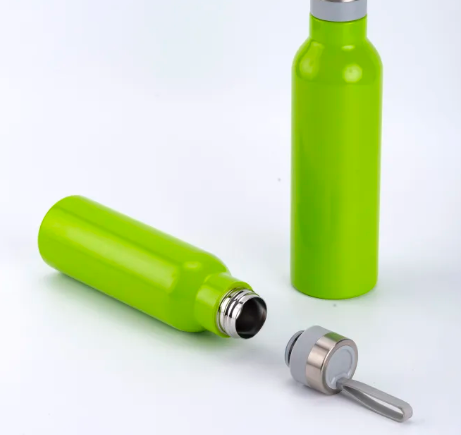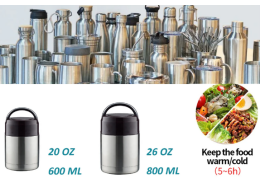Stainless steel, including 304 and 18/8 varieties, is considered harmless for drinking purposes at any temperature.However, it is essential to ensure that the water bottle is made from food-grade stainless steel to minimize the risk of leaching chemicals into the water.
Pros of Using 304 Stainless Steel Water Bottles:
- Durability: Stainless steel is known for its durability and resistance to corrosion, making it a long-lasting choice for water bottles.
- Bacteria Resistant: Stainless steel is less prone to bacterial growth compared to other materials, such as plastic.
- Temperature Retention: Stainless steel can maintain the temperature of hot and cold liquids better than some other materials.
- Recyclable: Stainless steel is recyclable, making it an eco-friendly choice for water bottles.
Cons of Using 304 Stainless Steel Water Bottles:
- Corrosion: If not properly maintained, stainless steel can corrode, especially when exposed to harsh chemicals or bleach.
- Scratches: Scratches in the stainless steel surface can cause the material to leach chemicals into the water, although this is rare with food-grade stainless steel.
- Heavy: Stainless steel water bottles can be heavier than other materials, making them less convenient for some users.
In conclusion, 304 stainless steel water bottles are generally safe for regular use when made from food-grade materials and properly maintained. However, it is essential to be aware of the potential risks associated with corrosion and scratches to ensure the safety and longevity of your water bottle.



 English
English German
German French
French Russian
Russian Spanish
Spanish Japanese
Japanese Korean
Korean Portuguese
Portuguese Ukrainian
Ukrainian Arabic
Arabic Italian
Italian.png?x-oss-process=image/resize,m_pad,h_184,w_260)


